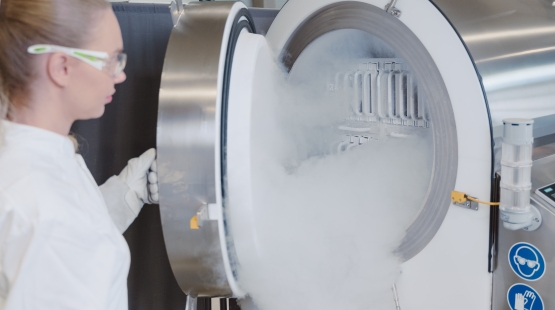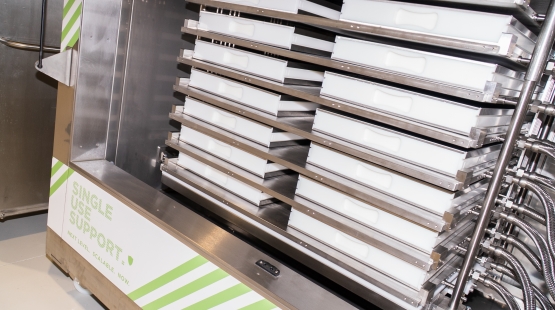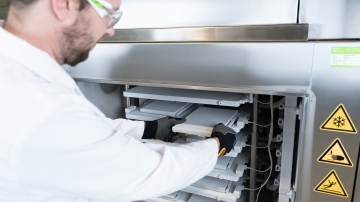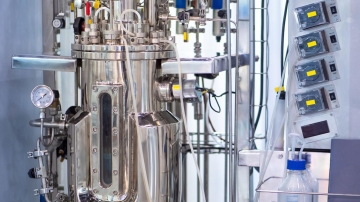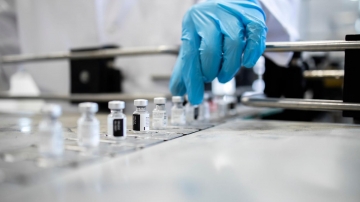Interview with NIBRT: Innovating Freezing & Thawing in Bioprocessing
Table of contents
ShowState-of-the-Art Freeze/Thaw System Donated to NIBRT
The National Institute for Bioprocessing Research and Training (NIBRT) announced in April 2024 the receipt of a donation of Single Use Support's Lab Scale freeze/thaw system. The collaboration between Single Use Support and NIBRT exemplifies a shared commitment to advancing scientific knowledge and driving innovation in the bioprocessing industry.
Yamsel Barandino, Bioprocessing Trainer at NIBRT, explains in the following interview why this will innovate the Bioprocessing industry.
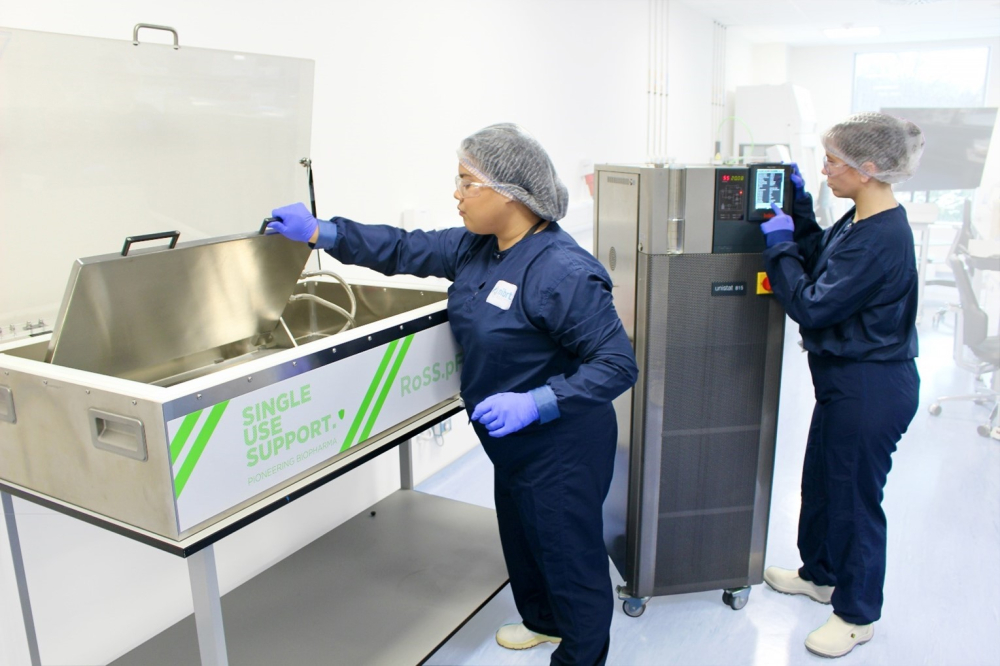
Briefly - what does NIBRT do?
NIBRT: "The National Institute for Bioprocessing Research and Training (NIBRT) is a global centre of excellence for training and research in biopharmaceutical manufacturing. NIBRT is located in a world class facility in Dublin, Ireland. This facility is purpose built to closely replicate a modern bioprocessing plant with state-of-the-art equipment and enables NIBRT to offer the highest quality training and research solutions. NIBRT’s mission is to support the growth and development of all aspects of the biopharmaceutical manufacturing industry."
How does NIBRT contribute to innovation in bioprocessing?
NIBRT: "NIBRT significantly contributes to innovation in bioprocessing through a multifaceted approach that combines advanced training, cutting-edge research, and strategic industry collaborations. By providing specialised training programmes within a state-of-the-art facility that mimics a real-world bioprocessing environment, NIBRT ensures that professionals are not only well-versed in theoretical knowledge but also gain hands-on experience with the latest technologies and practices.
Additionally, NIBRT's research initiatives focus on developing new technologies and improving existing processes to address critical challenges in biomanufacturing. Through strategic partnerships with biopharmaceutical companies, government agencies, and academic institutions, NIBRT fosters an environment of collaboration and innovation. These partnerships enable us to pool resources and expertise to develop innovative solutions that have a real-world impact."
How does Single Use Support's plate freezer help drive innovation in the bioprocessing industry?
NIBRT: "The RoSS.pFTU lab scale benchtop plate freezer drives innovation in the bioprocessing industry by offering a highly efficient and scalable solution for freezing biopharmaceutical products. Its advanced design ensures uniform and rapid freezing, which is critical for maintaining cell viability and product quality. By enabling precise control over the freezing process, the RoSS.pFTU allows researchers and manufacturers to optimize protocols and achieve reproducible results. Furthermore, its compatibility with various container formats and its compact, user-friendly design make it an ideal tool for both research and small-scale production settings. These features facilitate the development and scaling of new bioprocessing technologies, ultimately contributing to improved therapeutic outcomes and streamlined manufacturing processes."
Why is ATMP freezing so critical for the product quality (cell viability)?
NIBRT: "Sudden condition change-induced stress of a cell suspension can impact cell metabolism and viability and therefore can critically impact cell product efficacy and quality. In order to avoid these adverse effects, we have to use gradual and evenly distributed freezing, both of which we are able to do via employing a plate-based freezing method."

We have to use gradual and evenly distributed freezing, both of which we are able to do via employing a plate-based freezing method
Yamsel Barandino, NIBRTWhat do you consider the most relevant advantages of plate-based freezing over conventional freezing techniques?
NIBRT: "Plate-based freezing offers several significant advantages over conventional freezing techniques. Firstly, it ensures a more controlled and uniform freezing process, minimizing temperature gradients and reducing the risk of ice crystal formation, which can damage cell structure and viability. This method also allows for a faster freezing rate, leading to better preservation of cell viability and product efficacy. Additionally, plate-based freezing can accommodate a wide range of container types and volumes, providing flexibility for various bioprocessing applications. Overall, these advantages contribute to maintaining the quality and consistency of biopharmaceutical products."
More about NIBRT
For more information, please visit www.nibrt.ie.
Images: (c) NIBRT


